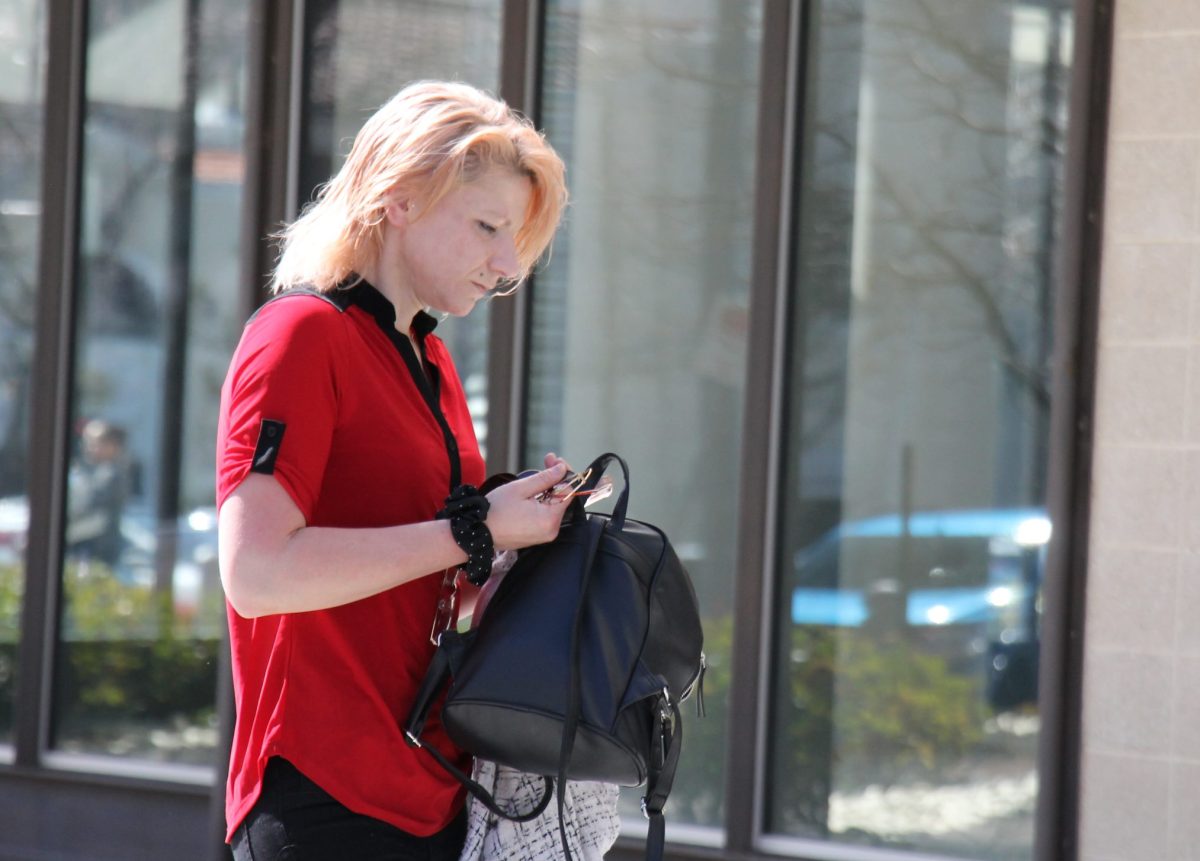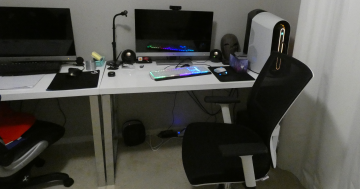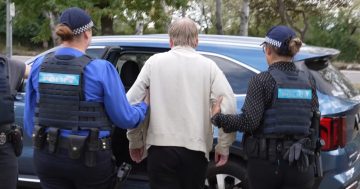
Chelsea Amalia Crivici appeared for a sentencing hearing on Friday. Photo: Albert McKnight.
A woman whose Tinder match sent or gave her child abuse material that portrayed about 1000 victims was charged after she eventually took the photos and videos to police.
Chelsea Amalia Crivici was handed charges that included using a carriage service to possess and transmit child abuse material, agreed court documents say.
She met her co-offender on the online dating application in 2020 before they later moved their conversation to WhatsApp from 2021 to 2022.
During this time, the co-offender sent her 68 files of child abuse material via WhatsApp, but she also sent 10 such files to him.
In April 2022, Crivici called police to report she had child abuse material, telling them the co-offender had given her an external hard drive that was found to contain 2146 files of such material.
She said sometimes she ignored what her co-offender sent her, but she responded other times because she was “really lonely”.
“I called police because I had been very uncomfortable for a really long time,” she told police.
“I understand I committed an offence by sending that material and receiving and keeping it.
“I kept the hard drive that he gave me as evidence but I never accessed it myself.”
Crivici had said that when media reported on her charges, her mother changed the locks to their home and told her to change her name, the ACT Supreme Court heard during a sentencing hearing on Friday (25 August).
Justice Chrissa Loukas-Karlsson then directly addressed the journalists in the courtroom to say, “Ms Crivici actually reported this matter to the police”.
“So there should be accurate reporting in relation to Ms Crivici because she actually reported the matter to police,” she said.
Her barrister, James Sabharwal, argued that being banished from her house because of media reporting was close to becoming extra-curial punishment.
The court heard she had diagnoses of post-traumatic stress disorder, Autism spectrum disorder and alcohol use disorder, although the latter had been in remission at the time of the offences.
Prosecutor Laura Hannigan said a psychologist’s report found her conditions had a significant impact on her functioning and at the time of the offending her already-impaired executive function would have been under an increasing amount of pressure while she tried to navigate the situation.
But the prosecutor also said the psychologist found her mental health conditions could not entirely explain her actions.
Ms Hannigan claimed Crivici had said she was aware possessing the material was wrong and had been thinking of reporting it to police, which she ultimately did.
The court heard attempts would be made to place Crivici in drug and alcohol rehabilitation, with Justice Loukas-Karlsson saying this would benefit both her and the community.
“Ms Crivici, you can’t keep living the way you have been living, something has to change,” she said.
“You need to do everything you can possibly do to turn your life around.”
The matter was adjourned to 12 September.






















Here's an idea - stop subsidising electric vehicles and their dangerous and highly polluting… View